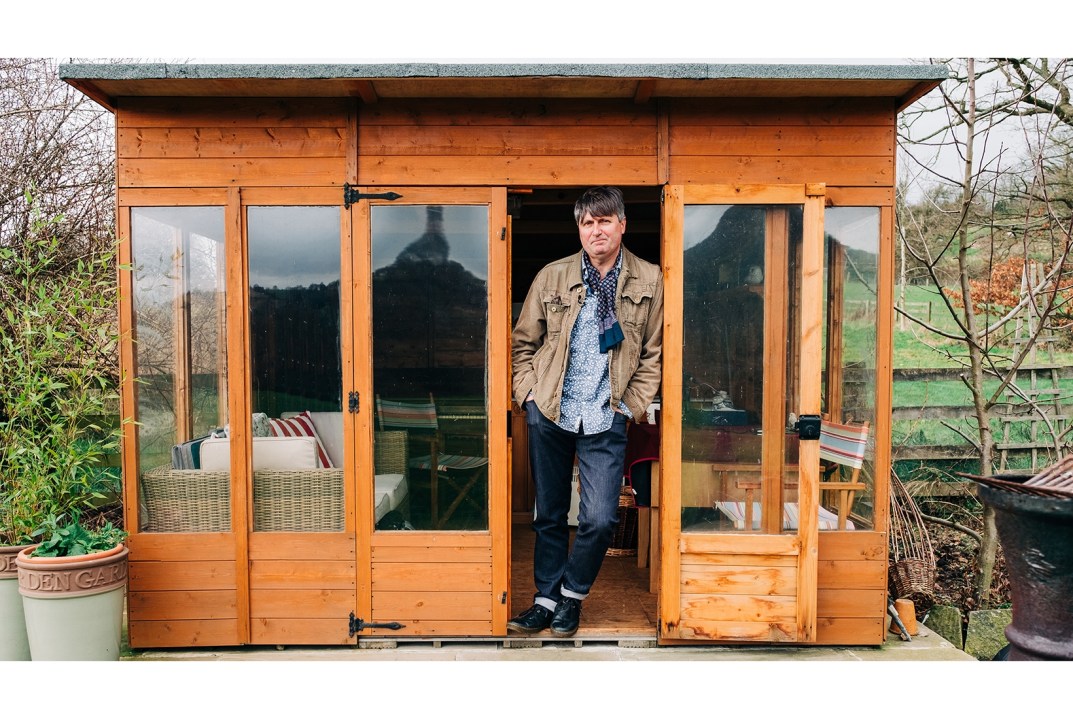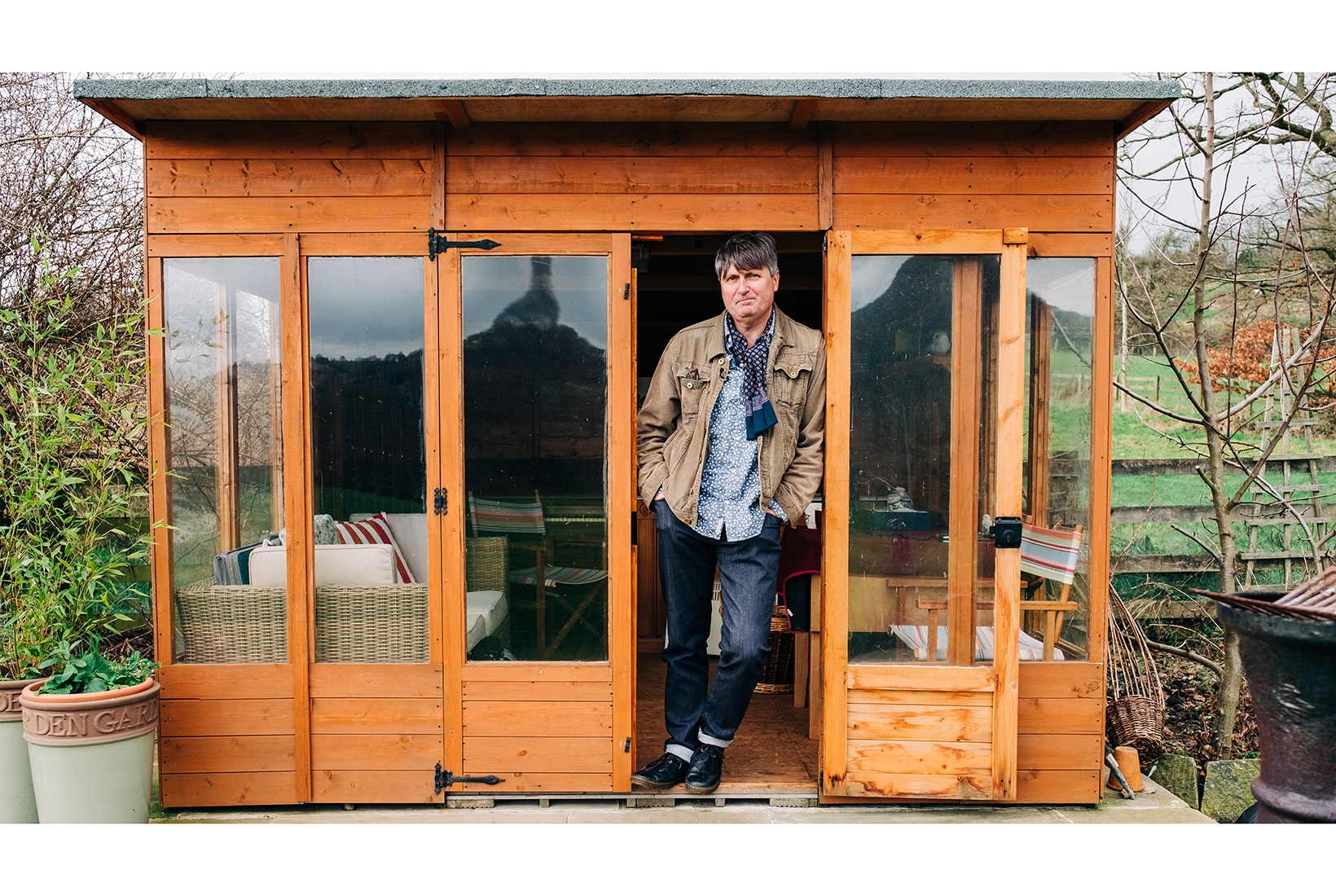The interview podcast is a genre immoderately drawn to gimmicks, as the logical space of possible formats is gradually exhausted. The interviewee, quite often themselves a podcaster, might be, for example, invited to noisily eat lunch while nominating their top-five deceased childhood pets.
The theory is that fanciful formats encourage the interviewee to open up. Under such conditions, the interview itself can come to seem incidental to the main event, the atmosphere chummy, comfortable, back-scratching, but fundamentally uninterested: you do my interview, I’ll do yours, no real questions asked.

The moderately fanciful premise of The Poet Laureate has Gone to his Shed sees the poet Simon Armitage solitary and at work in his garden shed, turning out haiku as part of a summer project. He is glad of interruption, though, and each week a well-known friend or fellow artist — J.K. Rowling, Antony Gormley, Johnny Marr — is invited ‘to call in for a natter’, answer a playful questionnaire, bring a ‘show-and-tell’ object and sample ‘a little tot of laureate sherry’. The fanciful premise — or, rather, premises — of the shed is forgotten with pleasing efficiency. (‘Did sheds figure in your upbringing?’ Armitage asks one guest, a little half–heartedly, before moving on.)
These are not so much interviews as overheard conversations, the listener forced into the posture of eavesdropper. (‘Put your ear to one of the many knotholes in the wall’, Armitage directs us.) Suitably positioned, we enjoy moments of occasionally spellbinding banality. There is something about Armitage — his subdued but obvious kindliness; his Eeyoreish voice — that compels his guests to lockstep at his undemanding tempo. ‘I like a plain Hula Hoop’, he muses during an unhurried digression about crisps with Jo Whiley, ‘though not in a sandwich.’
At other points, he describes in detail his lawn-mowing technique, reminisces about the M62 motorway and gets J.K. Rowling to confess that she ‘once wrote a paragraph of Harry Potter sitting on a public loo’. After some time, though, these wandering, aimless conversations take on their own restful, hypnotic quality. (Not to be listened to while driving.)
Suitably positioned as eavesdropper, we enjoy moments of occasionally spellbinding banality
Rather than merely ‘having’ a conversation, Manatomy is an attempt to do that more progressive thing and ‘start’ one. Each week comedian Danny Wallace and ex-editor of Men’s Health Phil Hilton ask a famous male guest on ‘to talk frankly about his body’. First he is invited to describe it. Then he is encouraged to dwell for an hour or so on his various ‘hang-ups’. It feels like the kind of discussion where all participants should be seated in a circle on plastic chairs. There is a high premium on disclosure (‘I’m kind of hoping people will discuss their genitalia’, Hilton says in anticipation), and a broad embrace of a transatlantic vocabulary of affirmation and self-acceptance.
Manatomy doesn’t quite succeed. Though impeccably well-intentioned, it feels over long, sometimes a little mindless, and neither Hilton nor Wallace (who for some reason puts on this distracting, strangely modulating, big-money-Lotto-Rollover voice) does enough to focus the discussion.
There are some jarring incongruities of tone, too. For instance, the pair disparage unrealistic or undesirable ideals of machismo, but then invite listeners to nominate their favoured paragons of manliness — Sean Connery, Bruce Lee, Arnold Schwarzenegger — and refer to one another in gruff-voice as ‘man-sized’ and ‘units’. (Episode two’s guest, Tom Allen, is a useful antidote here: ‘I largely based my identity on Anthony Hopkins’s character in The Remains of the Day’.) In fact, the show is vastly improved when the guest is able to steer it in a biographical direction: Allen on his long-standing attraction to repressive etiquette manuals and buttoned-up 19th-century dress, for example, or Marcus Brigstocke on his history of childhood obesity and addiction (Wallace, in his Alan Partridge voice: ‘So, by 17, you were a 5ft 9in Goth weighing 336 lbs?’)
I wonder, however, whether Manatomy will in the end have to contend with the unwelcome fact that no one’s physical appearance is as fascinating to anyone else as it is to themselves. Further, the mooted generic problems (of how to tend to one’s hairy shoulders, or of being slightly shorter than one’s girlfriend; the morality of using your ‘wife’s lady-razor in the shower as a neatening-up tool’) do not constitute the material dilemmas of anyone’s existence, not even men’s, and they do not take an hour to contemplate.







Comments